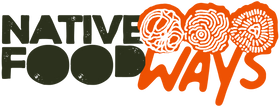

Native Foodways
Sugarbag Native Honey Rangers Program
Know as Gaiya in Gubi Gubi language, Sugarbag honey is some of the rarest on earth. It is also quickly becoming recognised as one of the most, if not the most, medicinal and healthy honey on the planet. What an incredible story and unique native resource. One that has been nurtured and cultivated by First Peoples since time immemorial.
First Nations communities around Australia have loved native honey for untold generations and each community has its own protocols around harvesting and sharing the golden treasure.
Native Foodways' Sugarbag Rangers Program is currently in development. We'll share more as we refine the program and confirm the details. When it launches it will see First Nations people establishing, managing, and harvesting native honey from native beehives. This will not only produce Indigenous made native honey, it will also support the pollination of important wild flora and cultivated crops.
Currently, there are only a few hundred kilos of native honey produced every year in Australia. We'd like to grow that to a few thousand over the next few years. And we'd like First Nations people to be driving that growth and benefiting from the results.
Our Co-Founder, Kubin woman Carla McGrath (Moa Island in the Torres Strait), lives on Minjerribah (North Stradbroke Island). There, with her Quandamooka partner Dean Parkin, they are starting to nurture native bees and maintain native beehives (images to come).
This program will have many positive outcomes including:
- More high-quality medicinal and healthy native honey and propolis for people to consume and gain health benefits from.
- Culturally meaningful and On-Country jobs for First Nations people.
- Indigenous wealth creation as Native Foodways and the First Nations communities we collaborate with are Indigenous-owned.
- Opportunities to practice and share Culture on Country and with Community.
- Environmental outcomes, as nurturing and growing the number of native bees and native hives increase pollination rates. Some plants can only be pollinated by native bees, and with European bees in decline, native bees are needed now more than ever.
If you'd like to get involved or support this project, please get in touch here.
*If you 'add to cart' or 'buy' this product above, you are donating directly to this project and supporting us to build capacity and make systemic change. If you'd like to donate more than $10,000, please get in touch.
**Native Bee illustration was drawn by Gamilaroi designer and artist Tristan Shultz as part of Native Foodways Brand Development.

